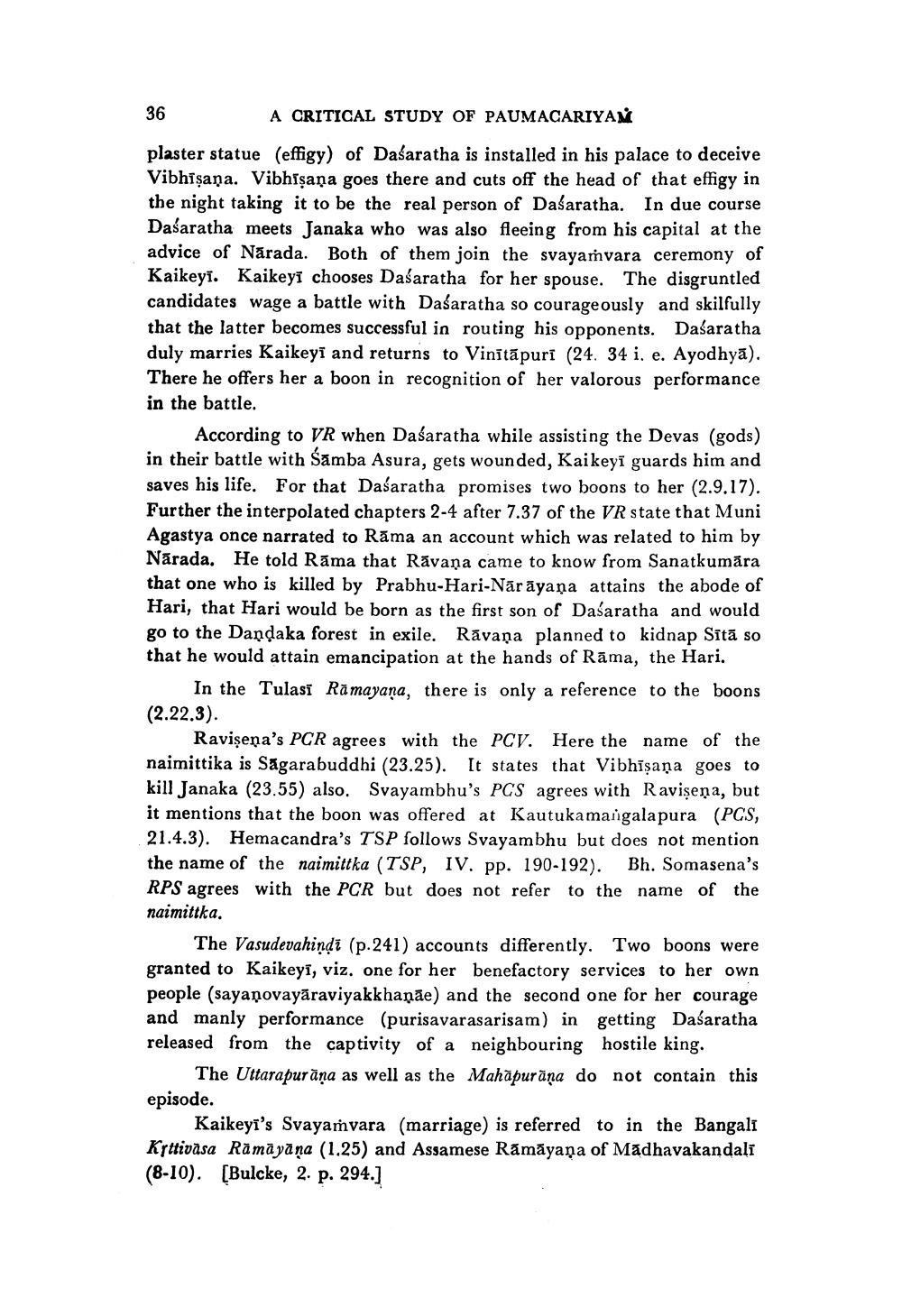________________
36
A CRITICAL STUDY OF PAUMACARIYAN
plaster statue (effigy) of Daśaratha is installed in his palace to deceive Vibhişaņa. Vibhișaņa goes there and cuts off the head of that effigy in the night taking it to be the real person of Daśaratha. In due course Dasaratha meets Janaka who was also fleeing from his capital at the advice of Narada. Both of them join the svayamvara ceremony of Kaikeyi. Kaikeyi chooses Dasaratha for her spouse. The disgruntled candidates wage a battle with Dasaratha so courageously and skilfully that the latter becomes successful in routing his opponents. Dasaratha duly marries Kaikeyi and returns to Vinītāpuri (24. 34 i. e. Ayodhyā). There he offers her a boon in recognition of her valorous performance in the battle.
According to VR when Daśaratha while assisting the Devas (gods) in their battle with Samba Asura, gets wounded, Kaikeyi guards him and saves his life. For that Dasaratha promises two boons to her (2.9.17). Further the interpolated chapters 2-4 after 7.37 of the VR state that Muni Agastya once narrated to Rāma an account which was related to him by Nárada. He told Rāma that Rāvana came to know from Sanatkumāra that one who is killed by Prabhu-Hari-Nārāyaṇa attains the abode of Hari, that Hari would be born as the first son of Dasaratha and would go to the Dandaka forest in exile. Răvaņa planned to kidnap Sītā so that he would attain emancipation at the hands of Rāma, the Hari.
In the Tulasi Rāmayana, there is only a reference to the boons (2.22.3).
Ravişena's PCR agrees with the PCV. Here the name of the naimittika is Sāgarabuddhi (23.25). It states that Vibhīşaņa goes to kill Janaka (23.55) also. Svayambhu's PCS agrees with Ravişeņa, but it mentions that the boon was offered at Kautukamarigalapura (PGS, 21.4.3). Hemacandra's TSP follows Svayambhu but does not mention the name of the naimittka (TSP, IV. pp. 190-192). Bh. Somasena's RPS agrees with the PCR but does not refer to the name of the naimittka.
The Vasudevahindi (p.241) accounts differently. Two boons were granted to Kaikeyi, viz, one for her benefactory services to her own people (sayanovayāraviyakkhaņāe) and the second one for her courage and manly performance (purisavarasarisam) in getting Dasaratha released from the captivity of a neighbouring hostile king.
The Uttarapur āņa as well as the Mahāpurāņa do not contain this episode.
Kaikeyi's Svayamvara (marriage) is referred to in the Bangali Kyttivāsa Rāmāyāna (1.25) and Assamese Rāmāyaṇa of Madhavakandali (8-10). [Bulcke, 2. p. 294.]




